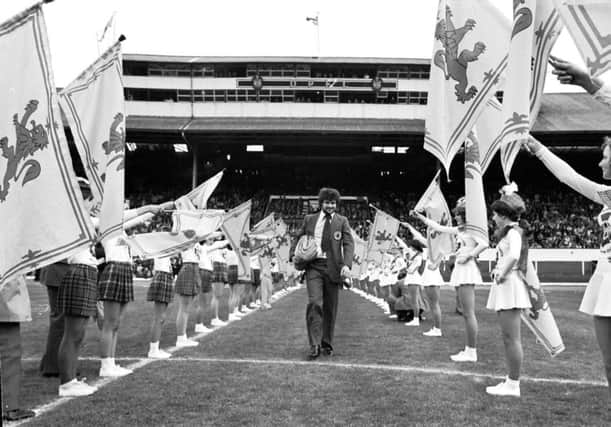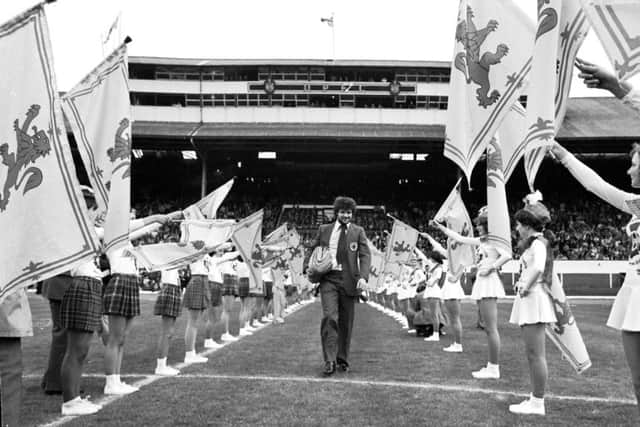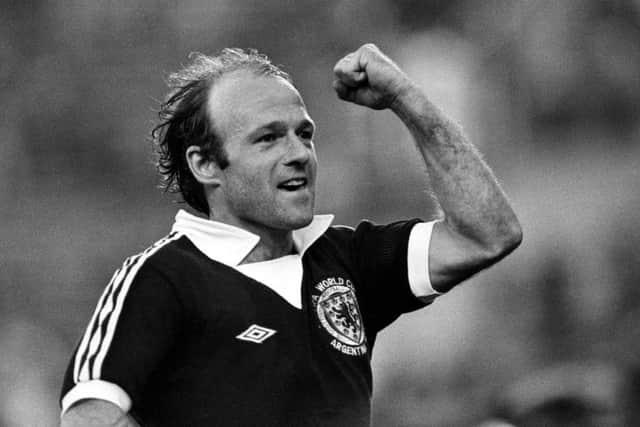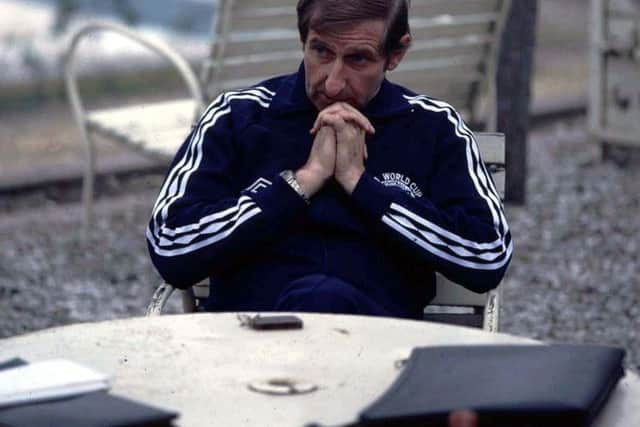Euphoria to defeat: the untold story of Scotland's 1978 World Cup


Forty years after Scotland’s ill-fated trip to the 1978 World Cup in Argentina the lid has finally been lifted the lid on the highs and lows - along with the heartache and romance - that unfolded in South America.
Previously unseen footage, personal diaries and photo archives from fans, and newly-recorded interviews are drawn together in a BBC Scotland documentary.
Advertisement
Hide AdAdvertisement
Hide AdIt will be shown on Wednesday to mark the 40th anniversary of the tournament, which still seen by many as Scotland’s most notorious sporting embarrassment and an event that possibly changed the course of the country’s political history.


Scotland ‘78: A Love Story explores how maverick manager Ally MacLeod, who infamously boasted that Scotland were good enough to bring back the World Cup, instilled a new sense of national pride, but came home in disgrace and was blamed for Scotland losing its “self-belief” when the devolution campaign ended in failure a year after the World Cup.
The hour-long programme, made by John MacLaverty, recalls the rollercoaster of emotions the fans and players lived through by MacLeod as Scotland qualified for the tournament, before a series of disasters unfolded on and off the pitch in Argentina, where the team exited after just eight days.
In the documentary, the family of MacLeod, who passed away in 2004 after a battle with Alzheimer’s Disease, discuss the personal impact Argentina had on him.


Willie Johnston, the Rangers player sent home in disgrace after failing a drugs test in the wake of Scotland’s opening defeat, recalls how he feared he was going to be shot as he was led away by arrmed guards from the team hotel.
But there are plenty of light-hearted moments as it highlights some of the adventures on the Tartan Army’s first overseas expedition.
Supporters Colin Weddell and Graeme Walker recall how they arrived off a flight in Trinidad, in the Caribbean, armed only with a pull-out map from a newspaper, before they realised they were not even in South America.
Weddell says: “When we arrived we had no idea we had 5000 miles still had to go. I always remember that the first bus journey we did took 18 hours. At that point you start to think: ‘This is a big place’.”


Advertisement
Hide AdAdvertisement
Hide AdRae Finlay recalls how he and his father hitched a life on on a boat from the north-east of Scotland all the way to Argentina.
He says: “We basically worked our passage with a paintbrush in our hands. We painted the boat from top to bottom, day in and day out.”
For some of those left behind in Scotland there were challenges in trying to watch the team’s three matches on television.
John Murdo Morrison, one of team of volunteers who helped install the first ever television cable on the Knoydart peninsula, says: “It took a lot of work. We had about four miles of cable and we dug and we dug and we dug. But we wanted to see Scotland win the World Cup.
“There was about 15 of us. It was hard work just to get a TV in for a Scotland game. But he (Ally MacLeod) brought the country together. He had us believing we were going to win the World Cup.”
The documentary unearths a number of archive interviews with MacLeod, including one in which he compares himself to the boxer Muhammed Ali. At one point he says of his team: “With a doubt they’re the best squad that has left the British Isles yet. Every eventuality has been taken care of.”
But, such was MacLeod’s confidence, he even decided against watching Scotland’s opponents, Peru, Iran and Holland, explaining: “What I’ve decided to do is try to win the World Cup by preparing my own team to perfection.”
Recalling the impact made by MacLeod, writer and broadcaster Billy Kay says: “We were a stateless nation. The Scotland national team was one of the few focuses that we had for our national identity. It was so important to have that expression - and the fitba team was good. There was a wee bit of swagger developing.”
Advertisement
Hide AdAdvertisement
Hide AdBroadcaster Stuart Cosgrove tells the documentary: “Scotland was still, by and large, seen by many people as a region of England. It didn’t have its own parliament or a sense of nationhood. Then along comes this mercurial, magical figure in Ally MacLeod.”
Archie McPherson, BBC commentator at the tournament, says: “I recall doing a tour of country with Ally. There was no question that people responded to him. This was a relationship between the people who wanted this demigod to succeed and this man who lapped it up.”
Such was the hype over their prospects, a now-infamous farewell party was arranged before the team flew out to Argentina.
Cosgrove recalls: “It was the absolute audacity of saying: ‘We’ll have a going away party. We’re so confident about going into this we’ll actually fill Hampden Park and go round in an open-top bus. We’ll do that on the way out there, never mind on the way back.”
In reality, however, Scotland’s tournament imploded with a 3-1 defeat to Peru, a failed drugs test for Willie Johnston which led to him being sent home in disgrace.
Recalling his journey to the airport for the first available flight home, Johnston tells the documentary: “When I was on that bus on my own, with two soldiers and two guns, I thought: ‘This is it, they’re going to take me onto that runway and shoot me’.”
In the wake of the Johnston scandal, there was growing hostility between the press and the players, amid reports of drunken disorder and in-fighting in the Scotland camp.
Worse was to follow when the players had to face the full fury of the fans after a humiliating 1-1 draw with Iran, described in the documentary by captain Bruce Rioch, as “the worst horror show you’ve ever seen.”
Advertisement
Hide AdAdvertisement
Hide AdMike Aitken, who covered the tournament for The Scotsman, said: “When things go wrong you are there to be critical and things definitely went wrong that took a dark narrative into nightmare territory.”
John Cullen, one of the fans seen by millions of TV viewers berating the players and MacLeod as they left the field, recalls: “They let us down badly. I was totally angry. We went there with great expectations and became a laughing stock.”
MacLeod’s widow Faye recalls the impact of the famous footage of her husband watching the game unfold with his head in his hands.
She said: “I wanted to fly out and give him a hug. Seeing him looking like that, so down, I thought: ‘That’s not my Ally.’ He was looking so alone. I was worried there was no-one he could talk to.
“I’ll never forget when he was leaving he turned to me and said: ‘I’ll either come back a hero or a villain’.”
Goalkeeper Alan Rough recalls how MacLeod appeared traumatised by the experience, saying: “His whole demeanour changed after the Iran game. I remember the next day I must have woke up about 6am. I went around the corner and there he was, sitting on a bench, with his head in his hands, in tears.”
His daughter Gail says: “He was optimistic, he never looked on the negative side of anything. You could feel it unravelling in front of you after the Iran game. I think he felt so isolated during it all.
“You could see when he came back he was a changed man. He had lost his sparkle.”